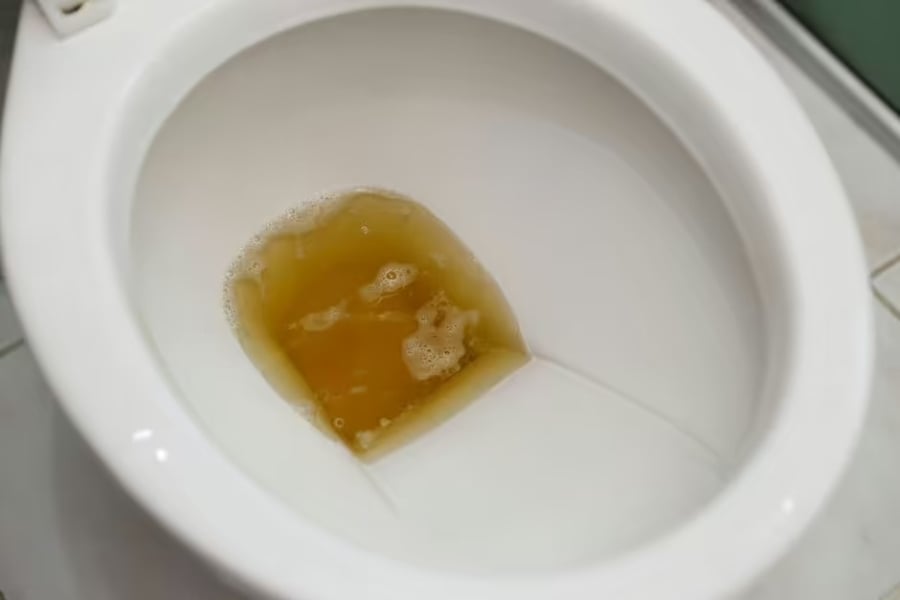Biliary cancer, or cholangiocarcinoma, is a rare but dangerous form of cancer that originates in the bile ducts connecting the liver, gallbladder, and small intestine, according to Liver Cancer UK. This insidious disease often exhibits no noticeable symptoms in its early stages, but there are some warning signs that can be detected during bathroom breaks – something that many people tend to overlook.
Two warning signs to pay particular attention to:
Dark or pale urine
Pale, putty-like stools
Both of these symptoms are indicative of jaundice, which occurs when the liver is severely damaged or the bile ducts are obstructed, causing bile to back up into the bloodstream. Jaundice is also characterized by yellowing of the skin and eyes, and intense itching all over the body, especially at night.

Other possible symptoms of biliary cancer include:
Rapid and unexplained weight loss
Loss of appetite
Prolonged fatigue, low-grade fever similar to flu
Abdominal pain or discomfort on the right side
While these symptoms are not specific to biliary cancer, experts advise individuals to proactively seek medical attention if they experience any unusual bodily changes, especially those aged 50–70, who are at the highest risk for this disease.

Not always caused by alcohol: Liver Cancer UK also emphasizes that liver and biliary cancer are not necessarily linked to alcohol consumption, contrary to popular belief. The specific causes of biliary cancer remain unknown as of yet.
Early detection is crucial for successful treatment and prolonging survival rates. Statistics indicate that only about one in twenty patients live beyond five years after diagnosis.





























